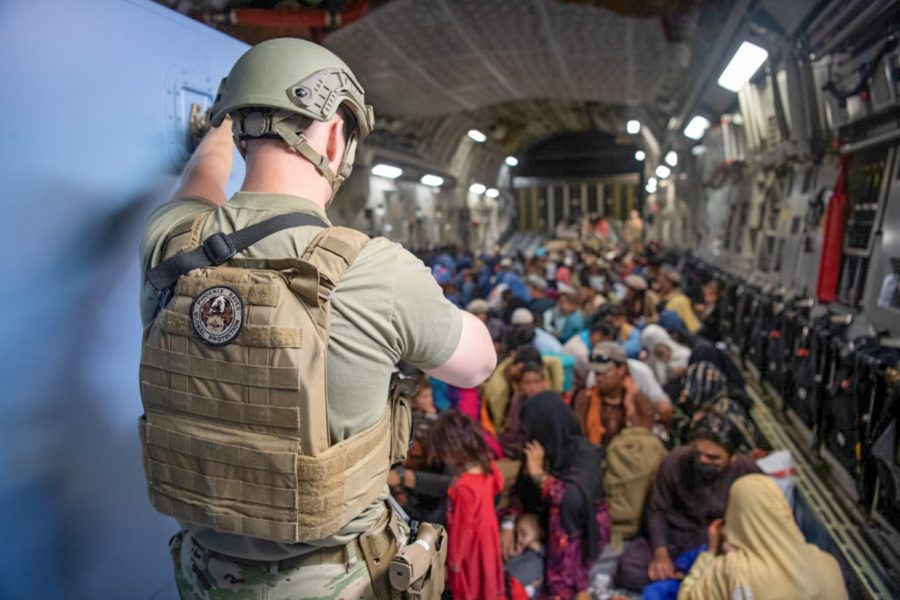A war fought since 2001 between the US and Taliban forces has ended. This past Monday the United States withdrew from Afghanistan, marking the first time in twenty years that a foreign military would not be in the country. This move concludes the deal made in February 2020 between the United States and the Taliban, wherein both parties agreed that NATO forces would withdraw from the country within 14 months.
The Taliban, who governed a majority of Afghanistan from 1996-2001, has rapidly seized control of the country over the course of three months. Since then, the Afghan Armed Forces have collapsed, and the American-backed President, Ashraf Ghani, has fled to the United Arab Emirates, according to The New York Times.
For Professor of Government and Law Ilan Peleg, the case of Afghanistan is indicative of America’s botched interventions in countries across Asia.
“If you look at the Post World War II era, the United States has been failing in military interventions. We were failing in Korea, we certainly were failing in Vietnam, and we were failing in Iraq. And now, we also have Afghanistan,” Peleg said.
Kabul, the capital of Afghanistan, turned to chaos quickly, with the International Airport runway filled with masses of individuals desperate to escape. Within that crowd, insurgents from the terror group ISIS-K set off an explosive that killed at least 162 people, 13 of which were American service members, according to USA Today. United States President Joe Biden’s stated objective since August 15 has been evacuating every American who wished to leave, as well as at-risk Afghans. According to CNBC, 120,000 Americans and Afghans have been evacuated since July. As of Tuesday, fewer than 200 American citizens remain in Afghanistan. Biden has stressed that there is no deadline for Americans who still wish to leave. However, there are potentially thousands of green card holders with no clear path back to the United States currently.
“There is a pattern of lack of success, and very often, because of a lack of understanding the situation on the ground of the social and political climate. Afghanistan is not much of a surprise at all,” he said.
Countless observers are concerned about the humanitarian implications of the Taliban’s takeover. Under their rule in the 1990s, women were barred from education and work opportunities, and executions were carried out publicly. While their public statements suggest that they do not intend to reinstate those policies, some evidence suggests that abuses have begun. According to reports from CNN, women are already being asked by soldiers to stay in their homes and to avoid school or work requirements.
Visiting Assistant Professor of Government & Law Miaad Hassan, said that some expect the Taliban to behave differently than they did when they last ruled Afghanistan in the 1990s.
“This does not suggest that the Taliban will eventually lead the country towards liberalism or democracy. Instead, they will try to gain their legitimacy, primarily from the outside by gaining the approval of the international community while resuming their domestic agenda,” Hassan said.





















































































































